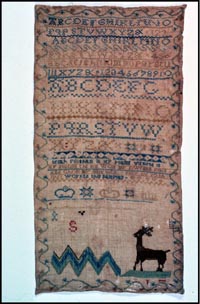Salvation

For most people in the eighteenth-century British Empire, political and spiritual salvation was inextricably tied to Protestantism, in all its guises. Both the Church of England and the Scots Presbyterian Kirk were "established" in the Empire under the terms of the Union of 1707, while dissenting denominations — such as Quakers and Baptists — were protected under the Act of Toleration of 1689 and succeeding parliamentary legislation. Enlightenment rationality and Deism might have deeply influenced prominent figures of the period, but a key cultural commonality for most Britons was a shared commitment to Protestant theology, not to any particular ecclesiastical brand of it. That also meant a decided opposition to the Roman Catholic church and its Pope, which stood for tyranny over the mind and spirit, something that Britain's liberty-loving God could never tolerate. So whether the quiet, even reasonable Latitudinarian Anglicanism of British Virginians, or the more robust separatist Puritanism of their colonial New England compatriots, Protestant Christianity was a powerful and pervasive tie that bound British peoples together and set them apart from others.








